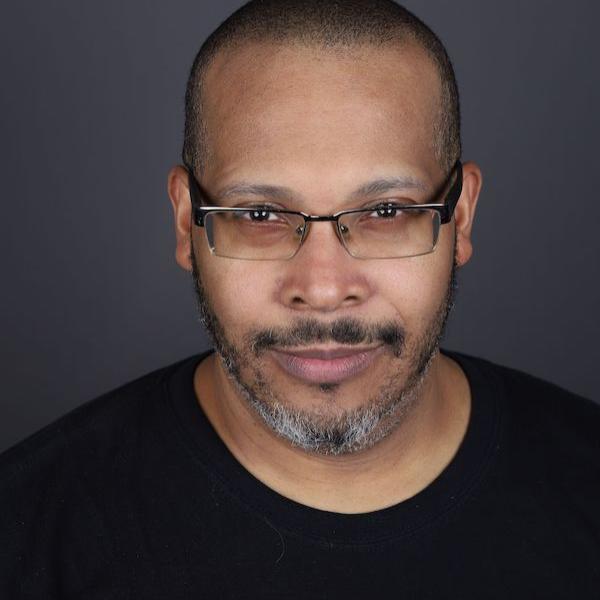Art Talk with Milton Rhodes
Milton Rhodes: I'm Milton Rhodes and we are in the Milton Rhodes Art Center on Spruce Street in downtown Winston-Salem, North Carolina.
Adam Kampe: You don’t get your name emblazoned on a downtown performing arts center for nothing. Milton Rhodes, now retired, was President and CEO of the Arts Council of Winston-Salem and Forsyth County for a total of 24 years. During the latter part of his tenure, he oversaw a $27 million comprehensive campaign which brought in $5 million to the Council’s Endowment. On top of that, the Arts Council secured a $200,000 NEA grant to enhance the look of 11 bridges along a stretch of the Business 40 highway. All this financial support coupled with his artistic vision transformed the city into a thriving center for arts and research. In his own words, Milton gives us a brief history of how this medium-sized manufacturing town—once known for cigarettes (R.J. Reynolds), underwear (Hanes), and doughnuts (Krispy Kreme)—became the City of Arts and Innovation. Winston’s artistic roots run deep, all the way back to the mid-1940s.
Milton Rhodes.
BIRTH OF AN ARTS COUNCIL
Milton Rhodes: It’s one of the first communities that got organized for a comprehensive arts and culture after World War II. They started the Winston-Salem Arts Council, 1946. And so right after the war, they had a group of women called the "Petticoat Brigade," self-named. And they went to a national Junior League convention in New York, and found out about community arts councils in Great Britain and Canada. And they found out about a consultant who came in and evaluated the arts programs that they had going on at Salem College, the oldest woman’s college in the United States, and decided to form an arts council. Junior League gave a little grant, 7000 dollars and told them they had three years to get it official, to get their tax ID, and official not-for-profit. So 1949 they formally established. Then it went on from there.
They spent a great deal of time thinking about what they wanted to be when they grew up. And as they grew and evolved, leadership in town, some not in the standard leadership positions, but some that were outside the leadership positions, started saying, "This is a city of the arts. Salem College that was started here, in the 1790s, you know, is really a jewel and we've got to expand on that."
Over a period of 60 years, with the help of the National Endowment and the help of the State Arts Council and foundations across America, through the persistent, long-term volunteer and staff leadership, they went after that brand for the town. And that's what has made it a success in creative place making, along with having the resource development as their key, having both volunteers and staff pursuing dollars to get artists and organizations formed. I mean, the last look that we had in this little town 330 thousand in our county, you know, there were 78 arts organizations in town. And what has emerged over time in those two areas of long-term view and consistently planning for the future, along with resource development, is the whole area of "everyone can do their own thing."
BIRTH OF AN ARTS LOVER AND LEADER
Adam Kampe: Milton Rhodes did just that, his own thing. Raised in Charleston, SC, he balanced a life of sports with one in the arts. In addition to playing football at Wofford College, he played piano, trumpet, and even appeared in an opera. Eventually, his passion for the arts led him to get his Masters in theater management at NYU during the free-spirited 1960s. This experience changed everything.
Milton Rhodes: I think the big revelation was "Hair," the musical on Broadway.
Hair up, hot
When I was in theatre management school we had 41 different kind of jobs around the New York City area doing internships. And one of them was to go backstage at "Hair" and watch what was going on and I went, "Wow, this is the most fabulous career you could ever make. I mean look at the energy coming out of these performers." I want to be involved in the management of this in some way.
Musical transition
During that time, I found out about two things: one was a book that had been written by Ralph Burgard called "Arts in the City." And it was one of the first publications that was done about arts councils and the need for coordinated efforts that had come after the Rockefeller, part of this panel report that Nancy Hanks had done. And it followed in what I was interested in, was cultural facilities and community planning and the architecture of the field, and how its shaped itself, how it designed itself. And it just revealed a whole new way of thinking for me as I was transitioning.
THE ROLE OF AN ARTS COUNCIL DIRECTOR
AK: Years later, after getting out of the Army, Rhodes immersed himself in the local arts scene, eventually becoming President and CEO of the Arts Council of Winston-Salem and Forsyth County. The year was 1971.
My early responsibility, and it was true of my predecessors, was to raise money. And at one time, I said when I started, 85 percent of my job was raising the money. Later, as I was able to get development people to assist me, it went down to 25 percent of my time was in fundraising. You had to keep the money coming in or you couldn't do anything. If arts councils didn't have some money to work with then the major organizations, symphony companies, dance companies, theatre companies, they wouldn't work with you, that you were not very important to them. And if you were a community arts groups, expansion arts types groups, then you very much appreciated those dollars, those little bit of dollars that you got from the local arts council.
The next percentage of time was serving on boards and commissions that were formed in the community. And I'd say when I left here in 1985, I was on 19 board and committees outside of Arts Council. And it drove me nuts, really, it was very complicated to try to keep up with everyting that was going on, that the community wanted you to be part of because you had something that would give it life and vibrancy. But very important part of the work about Arts Council Director, whether they're local, state or regional, trying to figure out how you implode yourself into the issues of the day because arts and culture can do it in every area.
Transition
And what Winston-Salem has been so good at is resource development. And resource development means, "Where do you get the money to do all the things you want to do?" That's back to what I was saying earlier is resource development really is something that the community leadership needs to focus on, and they need to have some staff and some willing volunteers who are going to stay after that over a period of generational changes from 1949, through now, I mean they've always had someone who was working on that.
ON BECOMING THE CITY OF ARTS AND INNOVATION
AK: Rhodes left his post at the Arts Council and took a job in New York running what was then known as the American Council for the Arts. Later, they became Americans for the Arts—the nation’s advocacy arm. After some time away, Rhodes returned to Winston-Salem as the city was in the midst of a sweeping technological and artistic renaissance.
Rhodes: I was 59 and-a-half and I came back in 2004. I came back to Winston-Salem because of the Dell Computer organization that came into Winston-Salem, I said, "Gosh, this is the time to go back and work in the job that I like the most of all the things I did in my career." And started hustling about the way we would try to come up with something that would really ignite the community again, because it needed a boost from arts and culture. And so, one of the things we worked on was branding the city as a "City of Arts and Innovation."
We had been calling it "A City of the Arts," for a long time, but the people in the research business and the people that some of the scientists at various colleges and universities didn't see how they'd fit into that City of Arts. And so, with the help of a terrific woman from Mullen, our biggest advertising firm, who kept plugging away at getting the Chamber, the Research Park and Arts organizations,
and the various bodies in town worked in the broader field of branding the community, to accept the term "City of Arts and Innovation." And that has been a good brand for us, ‘cause it really took advantage of our historic work and not only Moravian culture and African-American culture, but Hillbilly culture and mountain culture and all of that, that allowed us to develop a distinctive way of approaching, developing our community, our city, our region.
IN SUMMARY
There are so many things about the arts that make life better. Our challenge is how we connect that to organizations and to the infrastructure of communities. I don't think we have quite got into the word infrastructure of community. But when we do get into infrastructure, we will be as essential as roads, as educational institutions, as other forms of government that are part of our daily acceptance as essential. I think arts are essential to a society. They are not recognized yet, but I think it's coming, and it's probably going to happen in your lifetime, whatever your lifetime might be.
Adam Kampe: That was arts advocate, leader, and former president of the Arts Council of Winston-Salem and Forsyth County, Milton Rhodes. For the NEA, I’m Adam Kampe.
Music Credits:
The following excerpts used courtesy of Creative Commons and found on WFMU’s Free Music Archive.
- “Adventure, Darling” by Gillicuddy from Plays Guitar Again
- “Enrichment,” Back Stairs” and “Dolce Beat” by Podington Bear from Backbeat
- “Man, Man, Man (Girls You’re Thinking Too Much of the Men) by Vesta Victoria from Antique Phonograph Music Program
- “Storyteller” by Jahzzar from Traveller’s Guide
- “Good Feeling” by Scott Holmes




